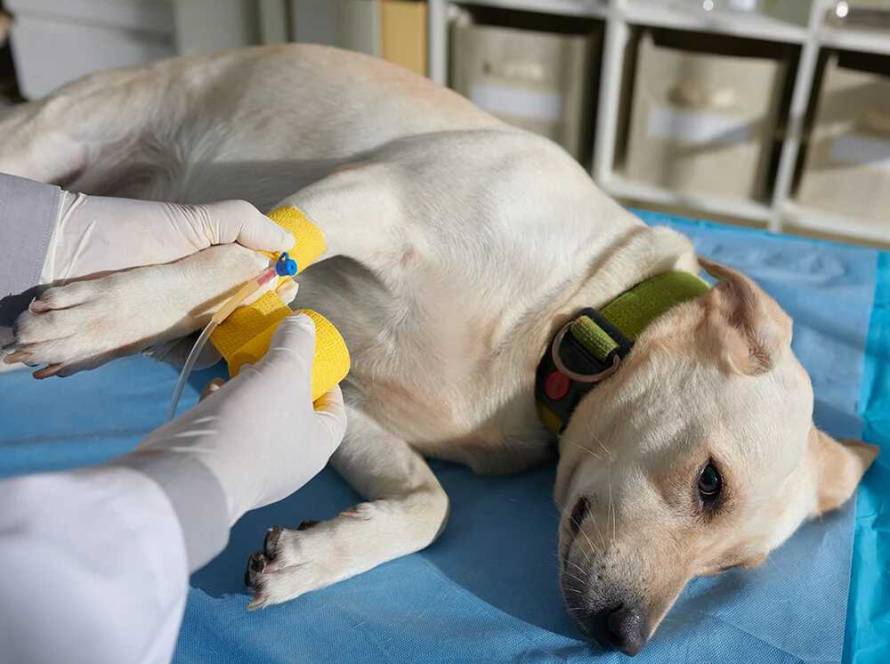In our fast-paced world, stress and anxiety affect not only humans but also our beloved pets. Dogs, cats, and other animals are susceptible to these feelings, and as caretakers, it’s crucial to recognize the sources of their anxiety and implement strategies to alleviate it. At Affordable vets, we emphasize the importance of keeping your pet serene and content, particularly during unexpected emergencies that may require veterinary attention. Let’s explore the typical triggers of pet stress and effective methods to assist them.

Identifying Sources of Pet Stress
Similar to humans, pets react to various changes in their surroundings, daily routines, and the emotional states of their human companions. Since animals cannot verbally communicate their feelings, they exhibit anxiety through different behaviors. Here are some prevalent causes:
- Unfamiliar Environments: Pets often feel anxious in new settings, especially if they lack prior social experiences outside their home. Situations like travel, vacations, or moving to a new residence can induce anxiety in both dogs and cats.
- Separation Anxiety: Particularly in dogs, separation from their owners can lead to distress, resulting in behaviors such as excessive barking, chewing, or other disruptive actions.
- Loud Noises: Many pets are frightened by loud sounds, such as thunderstorms or fireworks. Cats and dogs are especially sensitive to unexpected, loud noises.
- Physical Illness or Injury: Discomfort or pain can lead to anxiety in pets. They may hide or display aggressive behavior when unwell as a means of self-protection.
- New People or Animals: Encountering unfamiliar pets or individuals can be thrilling for some animals but intimidating for others, resulting in stress or avoidance behavior.
Recognizing Stress Indicators in Pets
Although pets cannot voice their feelings, they communicate through body language and actions. Here are common signs that may indicate your pet is experiencing stress or anxiety:
- Altered Eating or Sleeping Habits: A sudden shift in appetite or sleep can be a red flag for stress.
- Pacing or Restlessness: Persistent movement or an inability to relax often signifies anxiety.
- Destructive Actions: Chewing, digging, or clawing while left alone may point to separation anxiety, particularly in dogs.
- Aggression or Withdrawal: Some pets may become more aggressive or choose to isolate themselves when stressed.
- Excessive Grooming or Licking: Cats may groom themselves more than usual, while dogs might lick their paws or other areas as a form of self-soothing.
- Increased Vocalization: Excessive barking, whining, or meowing can indicate your pet is expressing discomfort.
Strategies to Alleviate Pet Stress
Implementing certain strategies can significantly improve the well-being of a stressed or anxious pet:
- Designate a Safe Space: Create a quiet area in your home where your pet can retreat when feeling overwhelmed. Include their favorite bed and toys for comfort.
- Maintain a Consistent Routine: Pets thrive on predictability. Establishing a regular schedule for feeding, playtime, and walks can help reduce anxiety.
- Provide Exercise and Mental Engagement: Regular physical activity and stimulating toys can help redirect nervous energy and keep your pet mentally occupied.
- Offer Comfort and Reassurance: Spend quality time with your pet and provide gentle physical contact, such as petting or cuddling, to reinforce their sense of security.
- Gradual Desensitization to Triggers: If loud noises cause anxiety, slowly expose your pet to softer versions of those sounds, gradually increasing the volume as they become more comfortable.
- Explore Calming Products: Consider using calming collars, pheromone diffusers, or anxiety wraps to help ease stress. Always consult your veterinarian before trying new products.
- Seek Professional Assistance: For severe anxiety issues, professional guidance from certified trainers or veterinary behaviorists may be beneficial.
- Practice Patience: Understand that it may take time for pets to adjust to changes or overcome their anxieties. Consistency and positive reinforcement can encourage improvement.
When to Consult a Veterinarian
If your pet’s anxiety persists or appears severe despite your efforts, it may be time to reach out to a veterinarian. Chronic anxiety can lead to physical health complications or exacerbate behavioral issues. The team at Affordable vets is here to assess your pet’s condition and recommend appropriate solutions, including medication or specialized therapy if necessary.
Addressing anxiety effectively is essential for enhancing your pet’s quality of life and strengthening your bond. Remember, a calm pet is a happy pet. For guidance or emergency care, please don’t hesitate to contact us.

Concluding Thoughts
By understanding the triggers of your pet’s stress and creating a supportive environment, you are taking vital steps to enhance their well-being. Reducing anxiety not only benefits your pet but also fosters a more peaceful home. For further assistance, tips, or emergency support, please reach out to our team at Affordable vets — we are dedicated to helping you and your pet during times of need.

